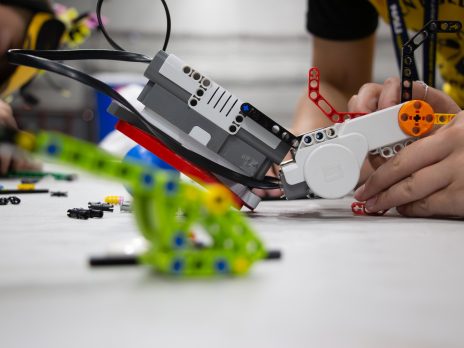
May 19 – 21, 2023– The lofty concrete space of the NAU Fieldhouse took on a new dimension by hosting the Lunar Legacy Invitational for youth competing in LEGO Robotics. Only two things are required to get middle school students interested in science: space and robots. That is precisely what the Lunar Legacy Invitational is all about. Upon entering the Fieldhouse, one could hear the buzz of drones flying around models of the Earth and Moon, the sifting sound of regolith shifting underneath wheels constructed by youth to navigate robotically on lunar surfaces, the echoing cheer of children and adults as a mission is accomplished, and of course the unmistakable clink of LEGOs being put together to create unique robots to traverse new worlds. Eight teams from across the country representing Arizona, Utah, California, and Delaware came together to compete in two different robotics events: Artemis ROADS and the First Lego League (FLL). All teams competed in challenges that encouraged youth to use the engineering design process to complete missions under the theme of “Lunar Legacy” such as launching paper rockets to different planetary bodies and creating a “lander” to keep precious cargo safe while touching down on the Moon. Each team also took a tour of the Lowell Observatory, where they stood in the footprints of lunar astronauts from the 1960s.
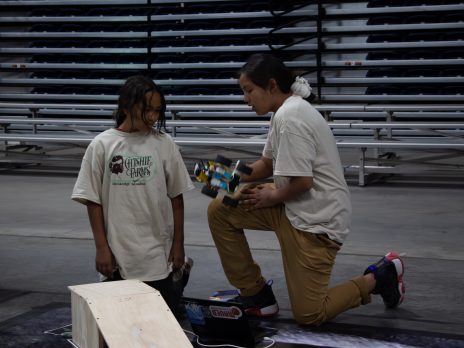
Despite elements of competition in the robotics event, the purpose was to allow youth to meet new people and practice their science and engineering skills as a team. David Morton, an 8th-grade homeschooled student from Delaware as part of the LOAD Robotics team in FLL, is in his 5th year in the program. He commented that learning “life skills” was the most rewarding part of the invitational, where he practiced working with others and completing tasks under pressure. David wants to be a LEGO Designer when he grows up, with a dream of creating a new Star Wars Stormtrooper battle pack, and remarks that being part of FLL exposes him to technical modeling and thinking, teamwork, and problem-solving.
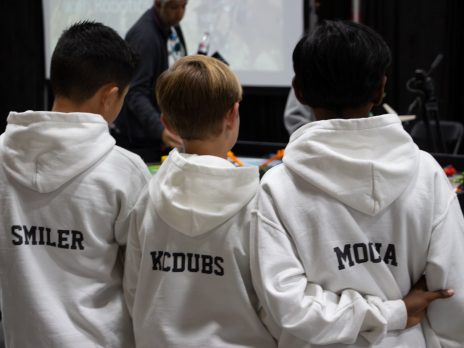
The last challenge that FLL teams competed in combined aspects of Flagstaff’s science history and landmarks, including a dark cave “Lava Tube” for robots to traverse through, a clay-colored maze as the Grand Canyon where teams collected a mineral sample with their robot, a complicated terrain full of LEGO Ponderosa Pines, and a LEGO Clark Telescope, the historic 24-inch refractor from Lowell Observatory that youth had to point to the sky using the arms of their constructed robot. Each objective in the challenge allowed teams to showcase their ingenuity on the fly through minor tweaks in code or reconstructing a robot’s appendage to better complete a mission under time pressure.
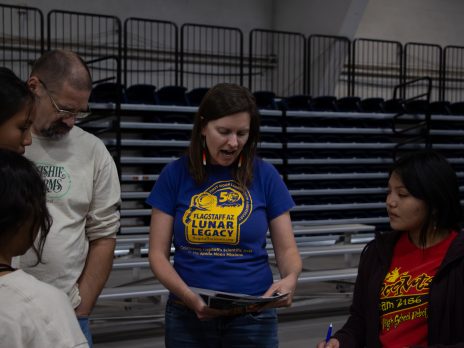
Chelsea Lauritcu, an 8th-grade student graduating from Thatcher Middle School (TMS) this year mentioned that competing in the Artemis ROADS mission was the best experience she has ever had at a LEGO competition and was happy that the competition allowed her to become closer to her team through shared adventures and challenges. The TMS Flaming Llamacorns team described the Artemis ROADS challenge as a tiny version of NASA, where they had to engage in each step required to plan a mission to explore another planetary body. The team spent time outside of the challenge observing the Moon to create a lunar calendar, designed and packed their own “Moon kit” with dimensional and weight restrictions, developed their mission patch, and even created a system to keep astronauts happy and healthy during their mission to the Moon. “We were able to learn about the work and science behind space missions,” said Chelsea. Both the Flaming Llamacorns and the Native Boyz, a team from Little Singer Community School in Arizona won the highest achievement in Artemis ROADS, Lunar Landing Status, which required that all mission objectives be completed. As part of achieving Lunar Landing Status, each team was entered to win a trip to Kennedy Space Center. Thatcher Middle School’s Flaming Llamacorns won the trip.
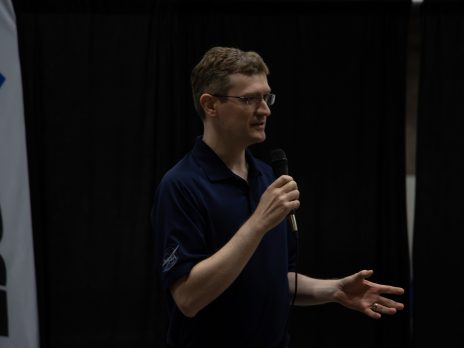
The Lunar Legacy Invitational was put on pause for three years due to COVID-19 and included online challenges only during the pandemic, but it was able to return in person this year as a country-wide attraction for youth interested in space and robotics. At the end of the competition, awards are given to different teams for their performance. The Hornets, a team from Utah, were awarded the “Spirit of Curiosity Award” for their drive to learn and explore throughout the competition. Another award named “Failure is Not an Option” was awarded to the Tech Bears team from California, for facing challenges with professionalism and for the inclusion of each team member in every step of the competition. The top-scoring team in the FLL competition was the Panda Power team representing Los Altos, California. Lastly, the LOAD Robotics team traveling all the way from Delaware was awarded the “Right Stuff” award, taken from the term given to the original astronauts for their courage and tenacity.
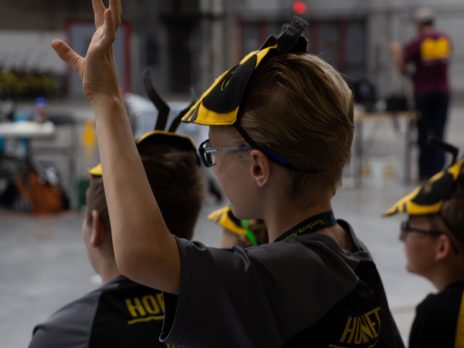 Written by Claire Gibson
Written by Claire Gibson
Images by Elisabeth Pendergrass